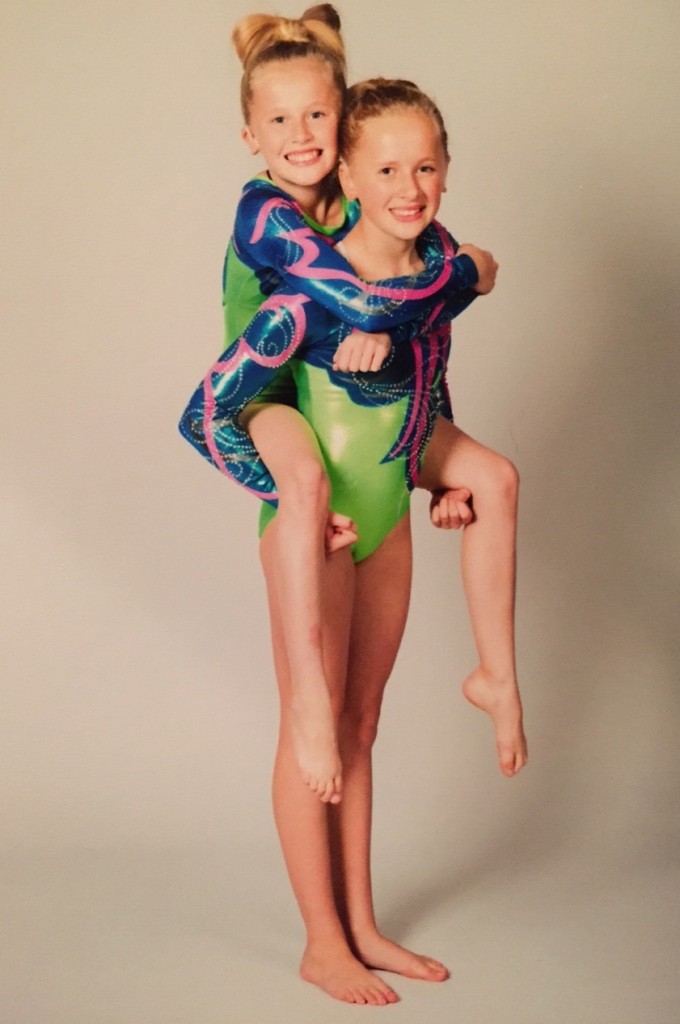 We wanted to check in on some of our recipients who are growing up Cochlear to see where they are today.
We wanted to check in on some of our recipients who are growing up Cochlear to see where they are today.
The Zacharias sisters – Callie and Lexie – were both born deaf and were bilaterally implanted with cochlear implants at one year of age. See the video of their story here.
We got in touch with their mom, Dacy (a Cochlear employee), to see how the girls are doing today and what’s new in their lives. Here is what Dacy had to share.
Since you last shared Callie and Lexie’s cochlear implant experience with us, what’s new in their lives?
Dacy: Callie is 13 years old and Lexie is 12, so we’re moving into the teenage years.
They are starting to learn more about themselves and explore what deafness means to them. After watching the TV show “Switched at Birth” and starting to see other kids’ different experiences with deafness, Callie and Lexie have become interested in learning sign language. In our home, we have chosen to treat their interest in learning sign as a second language – just like we would with learning Spanish, Italian or French. We encourage them to take the initiative if they are in fact interested in learning more.
It’s also been fun to see how they interact with others about their cochlear implants. At this stage of their adolescence, their cochlear implants are a novelty for them, and they like showing them off to peers. They are never embarrassed to be asked about them. They are excited their “cochlears” are the thing that sets them apart and makes them different.
How is school going for them?
Dacy: At school, they struggle just like every other kid. With their cochlear implants, they do still face some challenges in the classroom. It’s not that they don’t hear well–technology has helped with that–it’s more on the information/retention portion of their learning, which I believe is connected to how their auditory system works. I see this primarily in science and language subjects with my girls. I think teachers should treat kids facing hearing loss as they do kids who have English as a second language. When you say a vocabulary term, teachers need to explain it, use it in a sentence and make sure it makes sense, then repeat.
However, Lexie just came home the other day with her report card, and as I expected she’s struggling in science and language, but she received honors with distinction overall. Yes, my girls do have to work harder in some of their subjects, but it doesn’t mean they are going to struggle their whole lives.
 What extra-curricular activities are the girls involved in?
What extra-curricular activities are the girls involved in?
Dacy: Both Callie and Lexie are heavily involved in gymnastics. They train five days a week and are starting to compete against each other now. When they compete, their sound processors don’t fall off, but we use double-sided tape for extra protection during meets.
Lexie qualified to compete in the upcoming Alberta Winter Games. She competed two years ago and won gold; she was the youngest competitor out of more than 2,000 athletes.
Callie won the Western Canadian National Gymnastics competition in her level this year.
They wouldn’t be where they are in gymnastics without their cochlear implants.
Has anything changed for you as a mom of children with cochlear implants?
Dacy: A light bulb recently went off for me…my girls are pretty normal. They argue, bicker, sing Justin Bieber, high-five their teammates. I have to tell them to get off their cell phones. They are normal teenage girls.
When you have two babies who are born deaf, you worry about the need to constantly teach them and check in on them. When they were younger, I was hyper-sensitive. If they didn’t like the sound of something, I thought it was something wrong with their cochlear implants. But they just didn’t like it–just like everyone else has sounds like they like and don’t like.
I have to keep reminding myself life isn’t always about the big fireworks and accomplishments, it’s about realizing the mundane and every day is just as big and important.
Looking at where you are today, what advice would you give to a parent considering a cochlear implant for their child?
Dacy: My best advice would be to trust in the history of cochlear implants and the product. It’s a lot of hard work in the beginning with children–learning language, speaking, listening, using the technology– but it pays off in the long run. And it gets better. You won’t be thinking about the little things, language acquisition, etc. They roll along, and one day you get to the point where you think, wow, they are regular normal everyday kids.
Click here for more information on your child’s hearing loss.